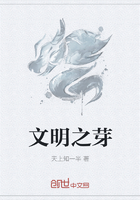Calvin exercised a great influence on the civil polity of Geneva, although it was established before he came to the city. He undertook to frame for the State a code of morals. He limited the ******* of the citizens, and turned the old democratic constitution into an oligarchy. The general assembly, which met twice a year, nominated syndics, or judges; but nothing was proposed in the general assembly which had not previously been considered in the council of the Two Hundred; and nothing in the latter which had not been brought before the council of Sixty; nor even in this, which had not been approved by the lesser council. The four syndics, with their council of sixteen, had power of life and death, and the whole public business of the state was in their hands. The supreme legislation was in the council of Two Hundred; which was much influenced by ecclesiastics, or the consistory. If a man not forbidden to take the Sacrament neglected to receive it, he was condemned to banishment for a year. One was condemned to do public penance if he omitted a Sunday service. The military garrison was summoned to prayers twice a day. The judges punished severely all profanity, as blasphemy. A mason was put in prison three days for simply saying, when falling from a building, that it must be the work of the Devil. A young girl who insulted her mother was publicly punished and kept on bread-and-water; and a peasant-boy who called his mother a devil was publicly whipped. A child who struck his mother was beheaded; *****ery was punished with death; a woman was publicly scourged because she sang common songs to a psalm-tune; and another because she dressed herself, in a frolic, in man's attire. Brides were not allowed to wear wreaths in their bonnets; gamblers were set in the pillory, and card-playing and nine-pins were denounced as gambling. Heresy was punished with death; and in sixty years one hundred and fifty people were burned to death, in Geneva, for witchcraft. Legislation extended to dress and private habits; many innocent amusements were altogether suppressed; also holidays and theatrical exhibitions.
Excommunication was as much dreaded as in the Mediaeval church.
In regard to the worship of God, Calvin was opposed to splendid churches, and to all ritualism. He retained psalm-singing, but abolished the organ; he removed the altar, the crucifix, and muniments from the churches, and closed them during the week-days, unless the minister was present. He despised what we call art, especially artistic music; nor did he have much respect for artificial sermons, or the art of speaking. He himself preached ex tempore, nor is there evidence that he ever wrote a sermon.
Respecting the Eucharist, Calvin took a middle course between Luther and Zwingli,--believing neither in the actual presence of Christ in the consecrated bread, nor regarding it as a mere symbol, but a means by which divine grace is imparted; a mirror in which we may contemplate Christ. Baptism he considered only as an indication of divine grace, and not essential to salvation; thereby differing from Luther and the Catholic church. Yet he was as strenuous in maintaining these sacraments as a Catholic priest, and made excommunication as fearful a weapon as it was in the Middle Ages. For admission to the Lord's Supper, and thus to the membership of the visible Church, it would seem that his requirements were not rigid, but rather very ******, like those of the primitive Christians,--namely, faith in God and faith in Christ, without any subtile and metaphysical creeds, such as one might expect from his inexorable theological deductions. But he would resort to excommunication as a discipline, as the only weapon which the Church could use to bind its members together, and which had been used from the beginning; yet he would temper severity with mildness and charity, since only God is able to judge the heart.
And herein he departed from the customs of the Middle Ages, and did not regard the excommunicated as lost, but to be prayed for by the faithful. No one, he maintained, should be judged as deserving eternal death who was still in the hands of God. He made a broad distinction between excommunication and anathema; the latter, he maintained, should never, or very rarely, be pronounced, since it takes away the hope of forgiveness, and consigns one to the wrath of God and the power of Satan. He regarded the Sacrament of the Lord's Supper as a means to help manifold infirmities,--as a time of meditation for beholding Christ the crucified; as confirming reconciliation with God; as a visible sign of the body of Christ, recognizing his actual but spiritual presence. Luther recognized the bodily presence of Christ in the Eucharist, while he rejected transubstantiation and the idea of worshipping the consecrated wafer as the real God. This difference in the opinion of the reformers as to the Eucharist led to bitter quarrels and controversies, and divided the Protestants. Calvin pursued a middle and moderate course, and did much to harmonize the Protestant churches. He always sought peace and moderation; and his tranquillizing measures were not pleasant to the Catholics, who wished to see divisions among their enemies.
Calvin had a great dislike of ceremonies, festivals, holidays, and the like. For images he had an aversion amounting to horror.
Christmas was the only festival he retained. He was even slanderously accused of wishing to abolish the Sabbath, the observance of which he inculcated with the strictness of the Puritans. He introduced congregational singing, but would not allow the ear or the eye to be distracted. The music was ******, dispensing with organs and instruments and all elaborate and artistic display. It is needless to say that this severe simplicity of worship has nearly passed away, but it cannot be doubted that the changes which the reformers made produced the deepest impression on the people in a fervent and religious age.















